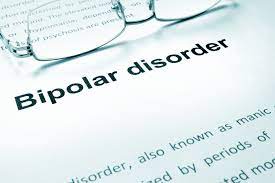Bipolar Disorder and Cognitive Functioning and Behavior
May 04, 2023
This paper discusses how Bipolar Disorder affects cognitive functioning and behavior. It examines the connection between bipolar disorder, cognitive functioning, and behavior by looking at various studies conducted on individuals with bipolar disorder. It discusses the impact that various types of moods have on cognitive functioning and behavior in individuals with bipolar disorder, as well as discussing the effect that different treatments used for the illness can have on cognitive functioning and behavior. Additionally, it looks at possible interventions to help improve cognition and behavior for those living with bipolar disorder.
Bipolar disorder is a mental illness that causes extreme changes in mood, energy and activity levels. People who have bipolar disorder can experience periods of extremely high moods—known as manic episodes—as well as periods of low moods known as depressive episodes. During these different phases, people with bipolar disorder may display different types of behaviors and exhibit poor or impaired cognitive functioning.

Research has demonstrated that during manic episodes, people with bipolar disorder tend to be more active and impulsive than they would otherwise be if their mood was stable. This increased impulsivity is linked to decreased attention, reasoning ability and executive functioning skills such as planning ahead, monitoring behavior, and making sound decisions. Additionally, individuals in manic states also often show signs of disorganization and difficulty focusing, which can lead to difficulty in completing tasks and making decisions.
During depressive episodes, people with bipolar disorder tend to be less active and have more difficulty concentrating than they would otherwise. Additionally, they often demonstrate a slower reaction time, impaired working memory, and deficits in executive functioning such as problem-solving skills. These changes in cognitive functioning are likely caused by the physiological changes that take place during a depressive episode—such as decreases in cortisol levels—that can affect brain activity and chemical balances necessary for proper mental functioning.
Treatments for bipolar disorder typically involve both medication management and psychotherapy. Studies have shown that medications used to manage mood swings associated with bipolar disorder—including lithium, anticonvulsants, antipsychotics, and antidepresants—can help improve cognitive functioning and reduce impulsive behaviors.
